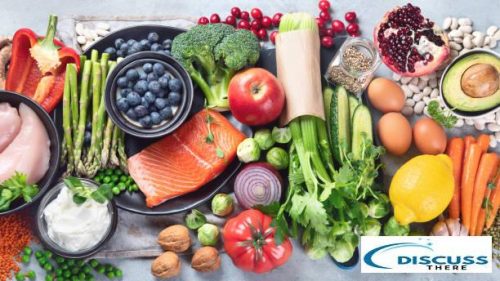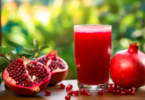Healthy food or diet is the nutrients your body needs to maintain its health and keep its vitality found in healthy foods. The main components that make up a healthy, balanced diet include water, carbs, fat, protein, vitamins, and minerals. In this article, we will discuss the top 10 healthy foods to eat.
Moreover, healthy eating has several advantages over unhealthy food. It benefits us in many areas of life. Our mental and physical health is both affected by eating well. We lower our risk of developing diseases when we consume nutritious fruits and vegetables.
What healthy diet means?
It’s a diet that provides the nutrients your body needs to function effectively, to put it simply. Diet is important because it ensures that the proper number of calories are consumed. When you eat a variety of calorie-dense foods including fresh fruits and vegetables, whole grains, and proteins, your body receives the proper nutrition.
Significance:
The main benefits of eating a nutritious diet are improved health, more energy, and improved happiness. The three pillars of total health and well-being are a nutritious diet, regular exercise, and healthy body weight.
Eating healthy:
Eating well has many advantages for both your body and mind. We feel better after eating healthily, and when we feel well, we are happier and more effective. This loop then has an impact on your job, your relationships, and your general quality of life. So it makes sense to consume the healthiest foods and experience the benefits of doing so.
List and benefits of healthy foods:
Of course water:
Is water food? Yes, it is considered food and healthier for all.
Significance:
When used in place of calorie-containing beverages like sweet tea or ordinary soda, water can assist with weight management and calorie restriction. Your body benefits from water in the following ways: hold the temperature steady.
Spinach:
You should be able to trust anything Popeye was a famous TV show in which benefits of the eating spinach are well explained.
Significance:
Spinach is a nutrient-dense superfood that is easily accessible in almost all supermarkets as a result of its rising popularity. No matter how you like it—fresh, frozen, or even canned, as our pipe-smoking sailor friend does. One of the healthiest foods in the world, spinach is high in nutrients and low in calories. The vitamins A, K, and crucial folate are also abundant in them.
Avocado:
The avocado is the marmite of the fruit world and can divide people. What if we told you that consuming 1 or 2 per week will provide you with all the advantages of healthy monounsaturated fats, potassium, folate, and vitamins K, C, B5, B6, and E?
Significance:
Avocados are wonderfully healthful foods that are rich in fibre and heart-protective fatty acids. By consuming this “alligator pear,” you can lower your cholesterol and triglyceride levels, protect your eyes, ease arthritis symptoms, and possibly even prevent cancer. If you haven’t tried it yet, I urge you to do so; if you weren’t a fan, perhaps give it another shot.
Whole grains:
At least twice or three times a day, consume whole grains. Look for whole wheat, rye, oatmeal, barley, amaranth, quinoa, or a multigrain when choosing your flour. 3 to 4 grams of fibre per serving are found in a good source of fibre. An excellent source has 5 grams or more of fibre per serving.
Lentils with beans:
Eat a meal with beans at least once every week. Lentils, including beans, can be eaten alone or added to salads, soups, stews, casseroles, and dips.
Seeds and flaxseed:
Add approximately one to two tablespoons of ground flaxseed or other seeds to your meals every day, or add 1/4 cup of nuts to your diet regularly.
Green leafy food:
Vitamin A, vitamin C, calcium, and several phytochemicals are all present in substantial amounts in dark, leafy greens (chemicals made by plants that have a positive effect on your health). Additionally, they increase dietary fibre.
Way to consume:
Consider varieties like mustard greens, kale, collard greens, spinach, and Swiss chard. They can be added to salads or sautéed in a little olive oil. Greens can be included in stews and soups as well.
Nutty food:
Nuts are a good source of plant protein, including hazelnuts, walnuts, almonds, and pecans. They also have monounsaturated fats, which could help lower the risk of heart disease.
Fruits:
Fruits can be consumed fresh, frozen, or preserved. Try fruits like mango, pineapple, or kiwi fruit instead of just apples and bananas. If fresh fruit isn’t in season, consider dry, tinned, or frozen options. Be cautious that fruit that is canned or dried may have sugar or syrup added. Pick canned fruit that has been either juiced or packed in water.
Vegetables:
With the help of an herb like rosemary, give grilled or steaming veggies some variation. In a non-stick skillet with a little cooking spray, you can also sauté (panfry) veggies.
Quick dish:
For a quick side dish, use frozen or canned vegetables—just reheat in the microwave before serving. Be sure to choose canned vegetables without salt, butter, or cream sauces. A new vegetable should be tried every week for diversity.
Meat and poultry:
Protein-rich foods include meat and poultry. Additionally, they offer your body a variety of additional nutrients it requires, including iodine, iron, zinc, vitamins (particularly B12), and important fatty acids. To maintain a healthy diet, it is advisable to include meat and poultry at least once a week.
Eggs:
The whites and yolk of eggs are both good sources of protein. In addition, they are a great source of essential nutrients like vitamin B6, B12, and vitamin D, says Kurt Hong, MD, an internal medicine specialist at Keck Medicine of USC. They also contain heart-healthy unsaturated fats.
Conclusion:
The risk of heart disease, stroke, obesity, and diabetes can all be decreased by eating healthily. By keeping a balanced diet, a person may also improve their mood and acquire more vitality. For additional advice on eating a healthier diet, consult a physician or dietician.







